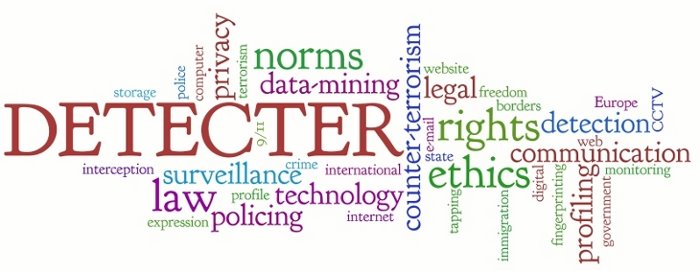Wednesday, February 23, 2011
Did US Government Agencies spend over 20 million USD on Bogus Software for Counter-Terrorism?
Eric Lichtblau and James Risen of the New York Times report that various US agencies spent a total exceeding 20 million USD between 2002 and 2009 for phony counter-terrorism technologies linked to a California computer programmer. Among the things which the programmer allegedly claimed to be able to do were "find terrorist plots hidden in broadcasts of the Arab network Al Jazeera; identify terrorists from Predator drone videos; and detect noise from hostile submarines." Reportedly, the technology provided the basis for the diversion and grounding of several US-bound flights in 2003. The story is available here in the Sydney Morning Herald. The news follows on charges from Senator Bernie Sanders that, between 2007 and 2009, the US Defense Department awarded hundreds of billions of US dollars to companies involved in fraud. Sen. Sanders’ assertion was based on a Pentagon report released in January.
Friday, February 18, 2011
UK citizen denied travel from Canada to UK due to inclusion on US no-fly list
Canada’s Star reports that a UK citizen has been unable to fly home to Sheffield from Toronto because his name is on the US no-fly list. After being told he couldn’t board an Air Transat flight, he tried both Air Canada and British Airways. But both carriers refused to take him, according to the story. The Star states: “Airlines that operate from Canada have been known to reject passengers whose names are on the U.S. no-fly list. That's because many flights pass over American airspace or may be forced to land at a U.S. airport in the event of an emergency.“ Application of the US no-fly list to flights originating from Canada but that do not land anywhere in US territory has been “long-standing” according to the paper. The Star also notes that a bill is currently before the Canadian Parliament that would permit Canadian air carriers to transmit passenger information for the US Secure Flight passenger screening program.
Wednesday, February 2, 2011
Petition for Rehearing of Maynard GPS Case Denied
The petition for rehearing the GPS issues from the DC Maynard case was denied this past November.
It was a close decision with 4 of the 9 judges dissenting. Two dissenting opinions were issued. The first, drafted by Chief Judge Sentelle and also signed by Judges Henderson, Brown, and Kavanaugh, argued that Maynard was not distinguishable from the Knotts case, and therefore there was no reason to have decided Maynard differently than Knotts. The opinion also took issue with the theory that aggregation of information could amount to violation of the Fourth Amendment, which the original decision appeared to promote. It expressed concern that this line of reasoning would mean that other forms of surveillance—including personally conducted visual surveillance—could be held to violate the Fourth Amendment when done on a prolonged basis. Citing an opinion from the Seventh Circuit, it also suggested that GPS tracking should perhaps not even be considered a search within the meaning of the Fourth Amendment.
The second dissenting opinion, drafted by Judge Kavanaugh, pointed out that the appellant had also asserted a Fourth Amendment violation on the basis of the interference with personal property through the installation of the GPS tracking device on the appellant’s automobile. Thus, Judge Kavanaugh opined that a rehearing was additionally warranted in order to adjudicate this question.
The order, a concurring opinion, and the two dissenting opinions are available here thanks to courtlistener.com.
It was a close decision with 4 of the 9 judges dissenting. Two dissenting opinions were issued. The first, drafted by Chief Judge Sentelle and also signed by Judges Henderson, Brown, and Kavanaugh, argued that Maynard was not distinguishable from the Knotts case, and therefore there was no reason to have decided Maynard differently than Knotts. The opinion also took issue with the theory that aggregation of information could amount to violation of the Fourth Amendment, which the original decision appeared to promote. It expressed concern that this line of reasoning would mean that other forms of surveillance—including personally conducted visual surveillance—could be held to violate the Fourth Amendment when done on a prolonged basis. Citing an opinion from the Seventh Circuit, it also suggested that GPS tracking should perhaps not even be considered a search within the meaning of the Fourth Amendment.
The second dissenting opinion, drafted by Judge Kavanaugh, pointed out that the appellant had also asserted a Fourth Amendment violation on the basis of the interference with personal property through the installation of the GPS tracking device on the appellant’s automobile. Thus, Judge Kavanaugh opined that a rehearing was additionally warranted in order to adjudicate this question.
The order, a concurring opinion, and the two dissenting opinions are available here thanks to courtlistener.com.
Labels:
human rights,
police,
privacy,
surveillance,
technology,
United States
Subscribe to:
Posts (Atom)


